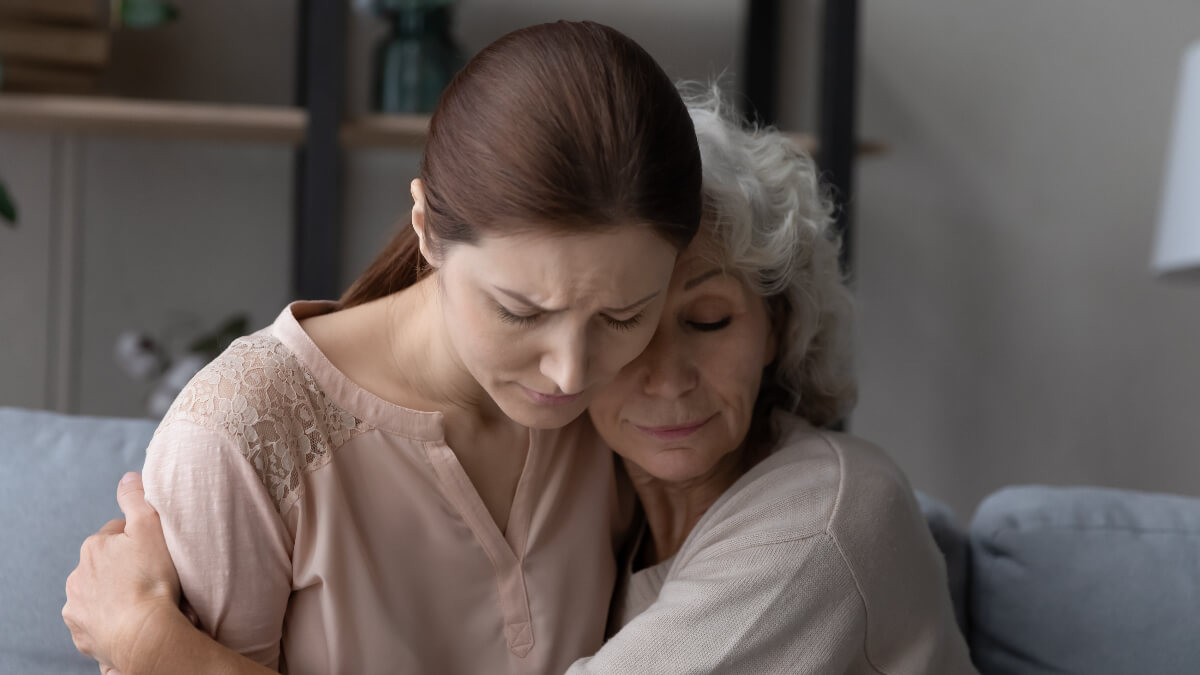When grandparents leave, the void they leave behind remains, but over time it becomes more bearable. To get to this point, seek support from your loved ones and accept your emotions.
“The death of a grandparent is a fact of life,” you will often hear. The inevitability does not make it any less painful or easier to accept , as they are important figures in people’s daily lives. You will most likely outlive them, so you will have to deal with their grief sooner or later.
Their place at the table will be empty, their stories will no longer be told in their voice, and there will be hugs and kisses that you will miss at family gatherings. However, it is possible to cope with their absence on a daily basis and have their memories make you smile. Let’s explore some avenues.
The normality of grief
Mourning, although painful and long at times, is a natural process in social animals , such as humans. Thanks to it, we manage, through various phases, to readapt to the environment in the absence of one of the members of our social group.
In the case of grandparents, we are talking about a special figure in family settings. They are people who contribute their life experience to the learning of generations after their own and, often, they fulfill caregiving functions . For this reason, it is very common for people to have memories of their grandparents linked to moments of comfort and security.
It is normal for a person as close as a grandfather or grandmother to leave a great void when they leave. However, remember that this pain heals naturally over time.
The worrying thing is not the intensity of the grief, but that it lasts longer than it should . That is why we share with you some tips to make your grief as healthy as possible.
How to cope with the loss of a grandparent?
Although we have said that mourning is a process that progresses on its own until the person reintegrates his or her life, there are some actions that help to go through it in a kinder and more compassionate way.
In this way, it is possible to reduce the intensity of negative emotions and reduce recovery time , but also to reconcile with memories of that person. Let’s look at some of them:
1. Accept your emotions
Ignore people who put a deadline on grieving and a limit on the intensity of your emotions. You have the right to cry, get angry and do whatever you need to do to vent your grief . As long as you maintain respect for those around you, don’t be afraid to feel.
2. Participate in some farewell ritual
Funeral rites, such as burial ceremonies or wakes, are social customs created to give the living an opportunity to say goodbye and to strengthen their relationships to better adjust to life without the deceased.
If you participate in this, you may benefit from taking that psychological step of acceptance and beginning recovery.
3. Seek support from your loved ones
Grief is better dealt with with social support . That is why the comfort you receive in the arms of your loved ones is as important as lending a shoulder to cry on. It is good to put your feelings on the table and empathize with those of others , as this normalizes sadness and it follows a more natural course.
4. Treasure and collect memories of your grandparents
You may be worried that certain memories about your grandparents will fade over time. Some people benefit from collecting memories with photographs, stories they used to tell, and objects with emotional value. Plus, you can come to terms with your melancholy in the process.
5. Talk to them or write to them
Some people benefit from talking out loud to their absent grandparent or writing a letter to them. It’s a good way to feel that their memory is with you and to process your emotions . Maybe you have something left to say to them or you want them to know how you feel. This practice is valid if it helps you to get through the grieving process.
6. Take into account sensitive dates
Their birthday, Christmas or other special dates can rekindle the pain of their absence, even if you have managed to rebuild your life without your grandparent. It is important to keep this in mind; not to repress yourself, but to become aware of it and process it in a natural way .
7. Do things you liked to do with your grandfather or grandmother
Once you have gone through the first stages of grief, which are the most intense and negative, you should go back to doing the things you liked to do with your grandfather or grandmother. Visiting a park, going to certain restaurants or watching the series that you enjoyed so much.
Although it will be painful at first, it will help you reconfigure your life and generate positive emotions about it.
My grandfather’s death hurts me too much, do I have a problem?
Finally, it is important to note that each person experiences grief in his or her own way . For those who find it helpful to write a letter, it may hurt to attend the funeral. Some people recover faster than others. Everything is valid, as long as it progresses towards recovery.
However, sometimes grief becomes complicated . The pain of the first few days continues and does not stop, the person does not adapt to life again, or even the absence of emotions are signs to take into account. If you feel that you are unable to overcome the death of a grandparent or another loved one, do not hesitate to seek professional support . No one should walk through grief alone.


